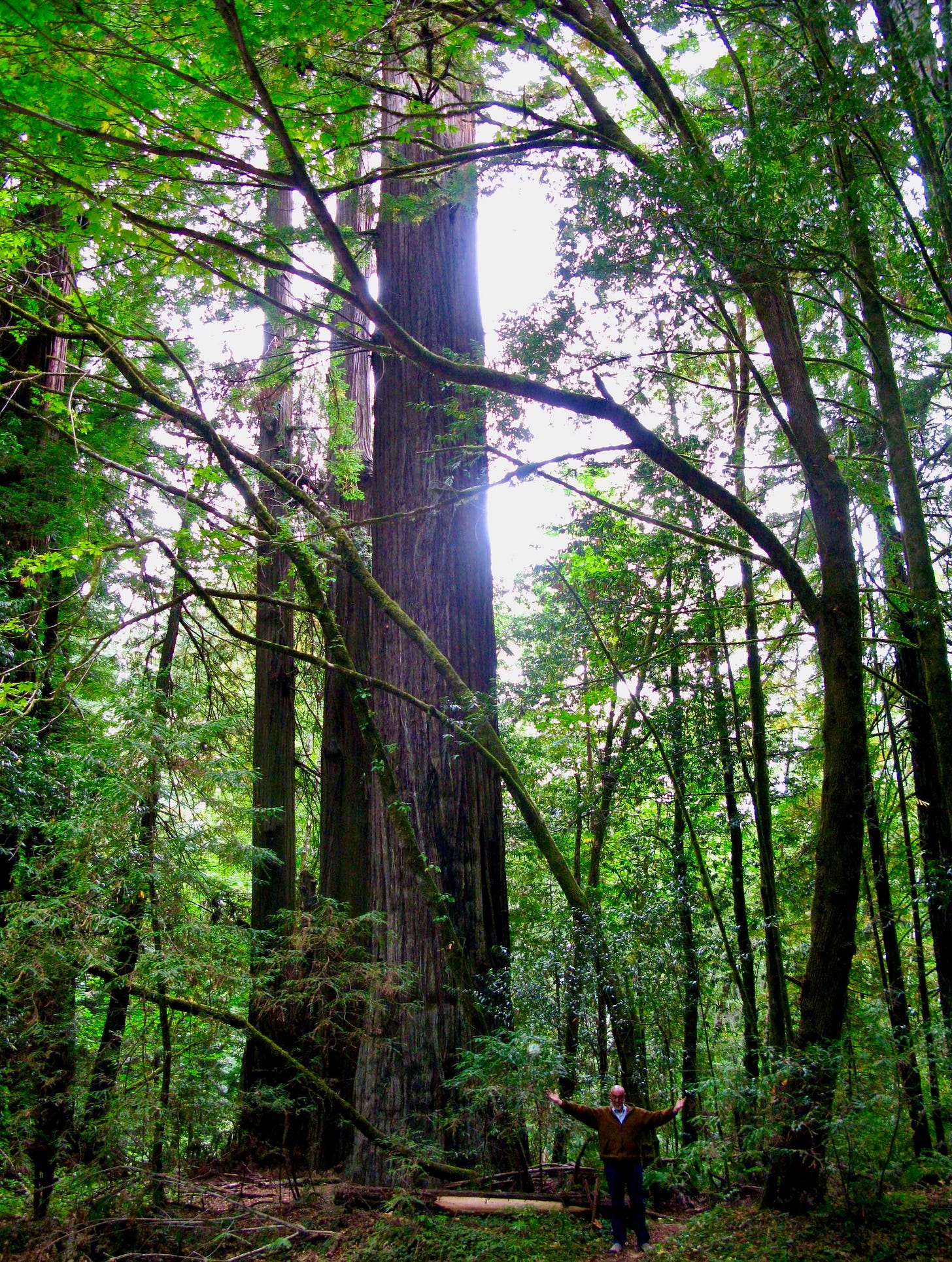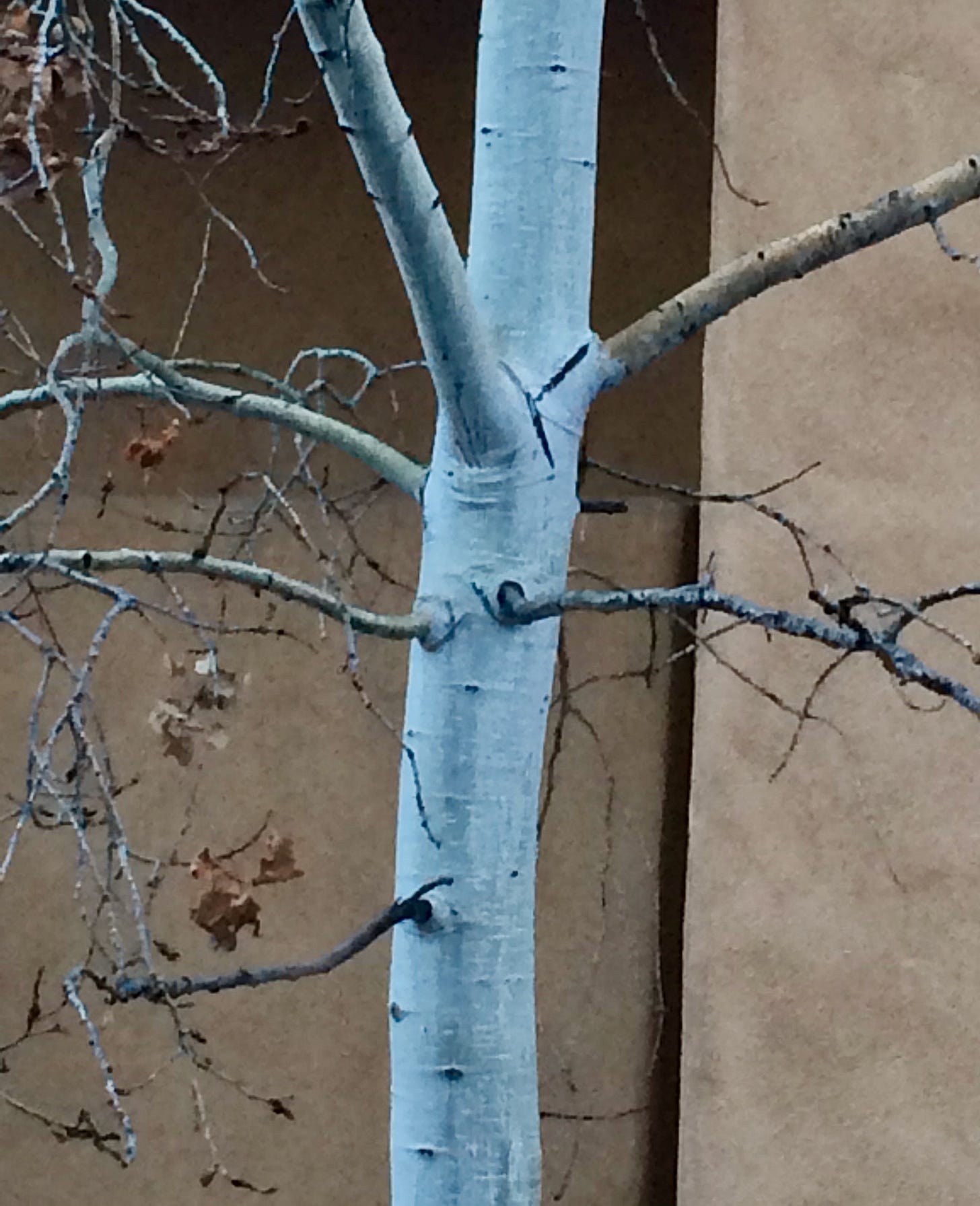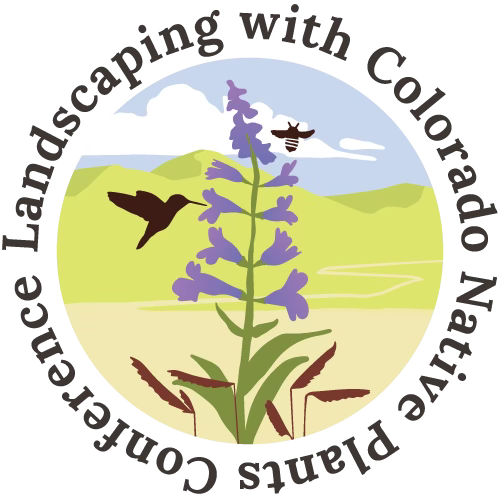That aspen is its own kind of person. It's not like they're human people. They're aspen people. … We have a different language for each other, but all of nature gets termed ‘it.’
—Robin Wall Kimmerer, speaking on the radio show “To The Best of Our Knowledge”
Hello Friends,
With all of the shock and awe going on in Washington DC, it’s pretty hard to focus on anything else. It helps to remember that we can each do something, and perhaps the most powerful “something” we can do in the long term is to live with as much kindness, compassion and generosity for others as possible—other species as well as humans. That’s why I want to talk about language and the power of pronouns today.
But first, remember that one way to resist the madness is to take time to honor the changing seasons: Saturday, February 1st, was Imbolc in the Celtic calendar, midway between Winter Solstice and Spring Equinox. In Celtic tradition, Imbolc marks the beginning of spring. Which may be hard to believe for some in the Northern Hemisphere, but it is a reminder that spring will indeed come.
You can take spring coming as a metaphor too, a reminder that eventually light and life will return to this chaotic world. Life as a whole tends toward diversity and abundance, which I find comforting in these times.
Imbolc reminds me of a wonderful opportunity to learn more about the power of native plants to restore healthy nature nearby for those in Colorado and adjacent states: the 10th annual Landscaping With Colorado Native Plants Conference on Saturday, March 8th at the Lory Student Center on the Colorado State University campus in Fort Collins.
Get inspired as keynote speaker Jennifer Jewell, host of the Cultivating Place podcast, talks about how a culture of care for native plants strengthens places and people. Attend sessions in two tracks, one for those new to native plants, and one for those who know the natives.
Network with plant-geeks of all sorts and learn from accessible and enthusiastic experts. (I’ll be there as conference MC.) Tickets range from $45 (students) to $90 (regular admission), and there are group rates as well, plus an option to purchase access to session recordings for those who can’t attend in person. See you there!

‘It’ is not a living being
Living beings are not objects, yet our everyday English language persists in de-personalizing everyone who is not human. (Note that the grammatically correct form of that last phrase is “everything that is not human.”)
‘It’ is a redwood tree who has witnessed the changes of a thousand years, as well as a microbe living a two-week life in your gut. The mother killer whale carrying her dead calf for 17 days, along with the bald eagle passing overhead with leisurely wingbeats, and the monarch caterpillar munching a milkweed plant in your garden. Even your companion cat or dog is ‘it.”
Those two letters reduce a life to a mere object, a non-person, a thing or a commodity. Things are what we collect, use, consume, discard, destroy. Not lives, which we (usually) respect, tend and treat with care. Reducing nature to an object distances us and allows us to treat the other lives with whom we share this animate planet as property. Not as kin. ‘It’ normalizes exploitation. Think about that.
Reducing nature to an object distances us and allows us to treat the lives with whom we share this animate planet as property. Not as kin. ‘It’ normalizes exploitation.
What other language do we have?
Botanist Robin Wall Kimmerer has offered the Potawatomi root ki (part of Aaki, which means the Earth) to replace ‘it,’ with the plural kin, a way to honor our relationship with other lives. For me, adopting ki feels too close to cultural appropriation.
Other writers, including the geologist David Williams in his “Street-Smart Naturalist” newsletter, have suggested simply using the first-person pronouns ‘she’ and ‘he.’ Which works for animals, but not plants, who are generally bisexual, both male and female.
I’m trying out the first-person use of ‘they’ and ‘them’ embraced by gender-neutral people. Using ‘they’ and ‘them’ acknowledges that gender is a human construction, not always a biological reality, and supports those who choose to differ from the norm in a time when their choices are under siege.
So unless I know the gender of the being I am referring to, I’m using ‘they’ as a familiar and non-gendered address: The redwood tree: ‘they.’ The mother killer whale: ‘she.’ The monarch caterpillar and the milkweed plant: both ‘they.’
Changing language is hard, as is changing habits of speech. Both require awareness and thought. Both can also right our relationships with ourselves and the whole rest of the living world.
Words have great power: Reframing our language is one way to resist greed, divisiveness, racism and other forms of inhumanity. Let’s work towards a language of generosity and inclusion.
Blessings, Susan






One of the major flaws in modern culture is a lack of connection to the natural world. Whether we like it or not, we are part of that world and we suffer when we think otherwise. This is, of course, the main premise of Practicing Terraphilia.
Lately I've been reading the recently published book (December 2024) Good Nature, by Kathy Willis in which Dr. (she is also a baroness!) Willis presents empirical data to back up the connection and how contact with nature, especially plants, improves our health. I picked this up at a recently opened bookstore in Shoreline whose owners seem to have great talent in picking interesting books.
Of course organisms should be respected in how they are mentioned and I have always tried to not refer to them as "it". We are not the only important creatures on this earth, having dominated it for a relatively short time. If you use length of domination of the planet, bacteria would come out ahead and there is reason to consider them the lords of creation even now. After them other microorganisms and ants!
I may have said this before, but it bears repeating: nature is my church. I've been a tree hugger since college and, believe me, that was a long time ago. Native American have always known we are part of all beings, and beings are anything that lives.